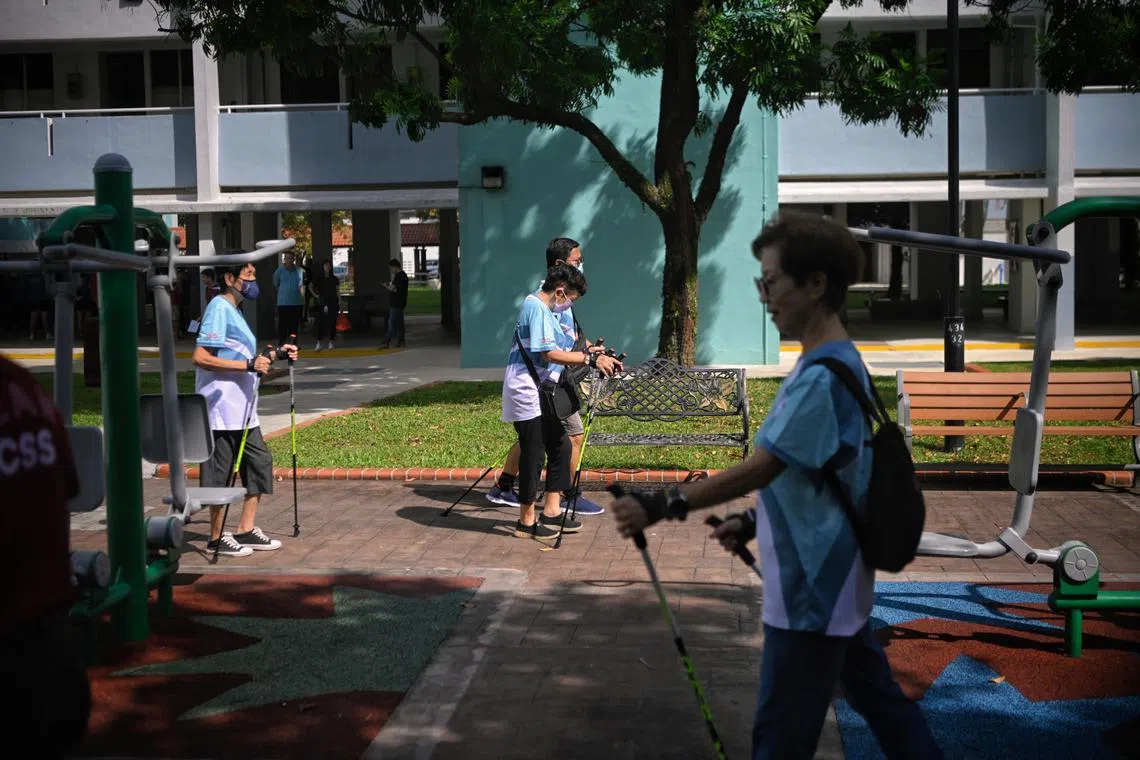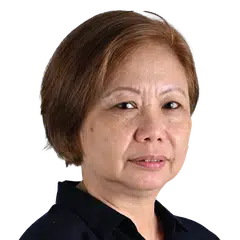Healthcare cannot be business as usual post-Covid-19: Ong Ye Kung
Sign up now: Get ST's newsletters delivered to your inbox

Everyone has a stake in creating health and caring for our people in their homes and communities, said Health Minister Ong Ye Kung.
ST PHOTO: MARK CHEONG
Follow topic:
SINGAPORE - Singapore is committed to a whole-of-government approach to healthcare, even after the Covid-19 crisis has passed. And as the peacetime workload resumes, it cannot be business as usual.
“We should usher in a new era of even tighter inter-agency collaboration,” Health Minister Ong Ye Kung said in Parliament on Wednesday as he backed a motion on supporting healthcare brought by Nominated MPs Tan Yia Swam, Shahira Abdullah and Abdul Samad.
The motion called for whole-of-government efforts for consistent and sustainable support for healthcare beyond the Covid-19 pandemic.
On Tuesday, Dr Tan, a breast surgeon in private practice, said the Covid-19 multi-ministry task force
She challenged the Government and those in the sector “to think beyond your usual areas and how you can apply to better support healthcare”.
Mr Ong said inter-agency collaboration during the pandemic had been taken to a new level, and he could not emphasise enough how much that meant to the hospital system, which would otherwise have had to bear the full brunt of the pandemic and “would have likely collapsed”.
The public service had a long history of inter-agency collaboration, but he called the pandemic “a special period” when the country united in a common objective to overcome a national crisis.
But Singapore “needs to walk out of its shadows, put it behind us and look into the future”, he stressed.
Mr Ong said there are two reasons why having an even tighter inter-agency alliance is especially relevant for healthcare.
“Ageing is probably the biggest social transformation for Singapore in the next 10 years, as we become a ‘super-aged’ society. This will have implications across multiple policy areas – employment, competitiveness, retirement adequacy, urban planning, education and healthcare. It will draw ministries together to work in concert.”
The second, he said, is that the Government has decided that the conditions and timing are right post-pandemic to effect a major healthcare transformation, to build on all the work that was done in previous years.
“Essentially, healthcare needs to go beyond treating sickness in hospitals and clinics by creating health in homes and communities. In other words, health is not just relevant to patients who have fallen sick, it should be health for all.”
He said healthcare comprises three inter-linked systems: acute care; population health, which Singapore is building through Healthier SG,
Aged care is the next major area of work in healthcare, but its default cannot be nursing homes or seniors living alone with no social support.
“We need to urgently step up whole-of-society efforts to enable our seniors to live their golden years in dignity, age actively in their community with their friends and family, and if they wish, leave well in a family environment surrounded by their loved ones,” he said.
To make health for all possible, the contribution of every stakeholder, public or private, is needed, he stressed.
“When healthcare is mostly treating sickness, it falls mostly under the domain of hospitals. But when healthcare is about creating health and caring for our people in their homes and communities, it becomes everyone’s business.
“In order to realise health for all, we also need all for health. I think this is really the spirit behind the motion put forward by our NMPs.”
He also touched on the issues of manpower and financing raised by MPs.
Mr Ong said that at the heart of any healthcare system are the healthcare workers, whom the Government will support “as much as we can”.
“Part of this work is to regularly review remuneration of healthcare workers to ensure that it recognises the contribution of the workforce, and make sure that the remuneration is competitive,” he said.
Mr Ong also assured the House that his ministry is actively recruiting both local and foreign healthcare workers to boost the workforce, “given the rising attrition suffered in the last two years of the Covid-19 pandemic”.
It takes time to conduct selection and examinations overseas, and for the shortlisted candidates to move to Singapore, he said. Foreign healthcare workers have been trickling into the country, and it is hoped that more will come onboard in the second half of 2023.
Those who have performed well and are committed to Singapore are welcome to apply for permanent residency, he said, adding that a few MPs’ suggestions to grant such workers’ dependants PR status as well was “worth serious consideration”.
On financing, Mr Ong said it is widely known that spending more on healthcare does not mean better health outcomes
He said that given the 4 per cent of gross domestic product that Singapore is spending, “we deliver very good health outcomes”. He further noted that healthcare is affordable for middle- to lower-income groups.
“Today, about seven in 10 Singaporeans in subsidised wards do not have to pay any out-of-pocket expenses; eight in 10 pay less than $100 cash out-of-pocket, and nine in 10 pay less than $500 in cash out-of-pocket,” he added.
A total of 16 MPs debated the motion over two days and supported it.


